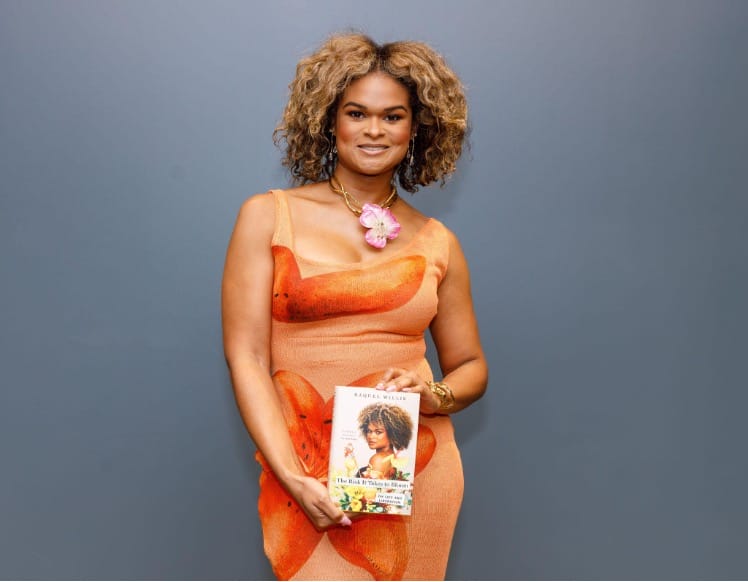To non-Southerners, existing at the intersection of Blackness and queerness in the South can be perplexing, especially to those who subscribe to the idea that freedom from oppressive systems for queer people is only a coastal reality. But Raquel Willis, a celebrated trans activist, journalist, and author of the new memoir “The Risk It Takes To Bloom—” and an Augusta, GA, native, made it clear on December 5 during the Atlanta stop on her promotional tour at Auburn Avenue Research Library— that the South has all of the “ingredients” necessary to develop revolutionary leaders.
Willis is one such leader. Her journey unfolds in “Bloom,” describing how she grew up in a Catholic home, then college as a University of Georgia journalism student, coming to terms with her sexuality and gender identity, to becoming one of the most formidable Black trans activists in history.
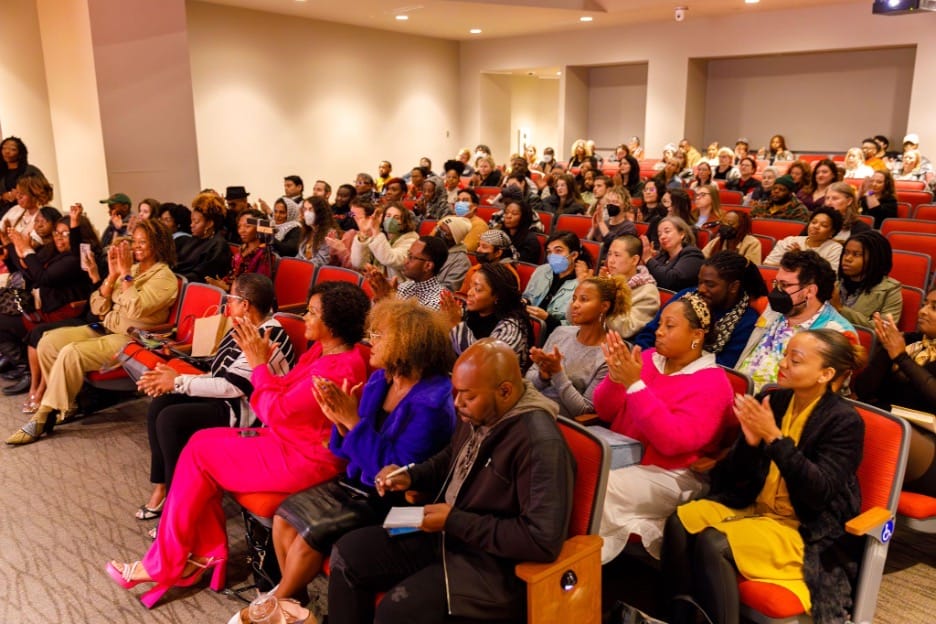
A packed auditorium, including members of Willis’ immediate family, welcomed her to thunderous applause as she sat to discuss her debut memoir with trans actress and advocate Angelica Ross (“POSE,” “American Horror Story”), who appeared onstage in a black leather jumpsuit accented by a Palestinian sash around her waist—an early indication of the nuanced and complex conversation to follow between the two trans icons.
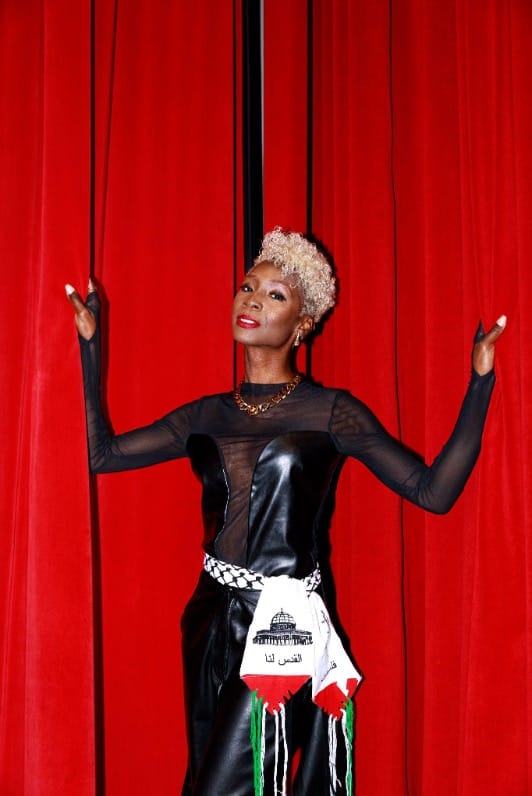
“My queerness and my transness was a strike against me,” Willis said. “So many of our families and our parents are not necessarily equipped to understand our queerness, our transness, our difference.”
In “Bloom,” Willis writes about the impact of her father’s death at age 19 and her parents’ response to her coming out as gay and later as trans.
“I had to come to an understanding that, in some ways, there was a lesson in his passing,” Willis said.” And the lesson was that life is too short, and I needed to figure out my path. And also, I needed to be able to relinquish his expectations. [And by doing so], I was freed up to understand my transness and womanhood,” she added.
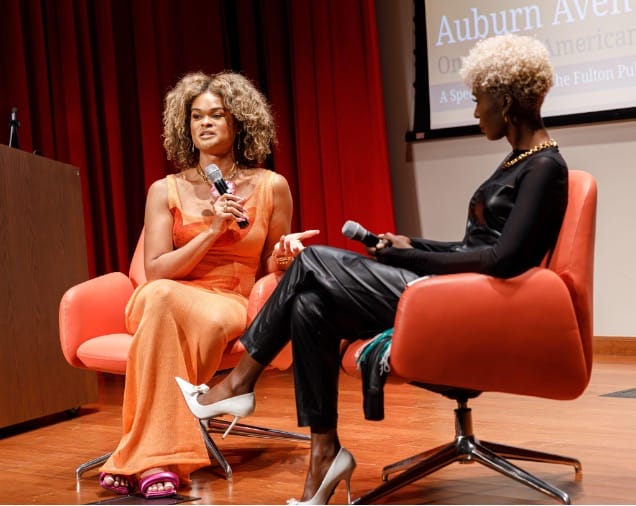
Ross, a practicing Buddhist, drew parallels between the title of Willis’ book—inspired by a line written by Elizabeth Appell and first heard by Willis on “The Element of Freedom” (intro) from the 2009 Alicia Keys album by the same name—and the significance of the lotus flower in Buddhism growing into full bloom despite being immersed in “muddy, murky water.” Willis’ response underscores the courage it took to embrace her truth as a Black trans woman.
“We’re called to shatter expectations at various points in our lives, and we have to get to a point where we can at least take the risk to see, well, maybe there’s something better out there than this thing that is restricting me,” Willis said. “And I don’t think that’s just a trans thing.”
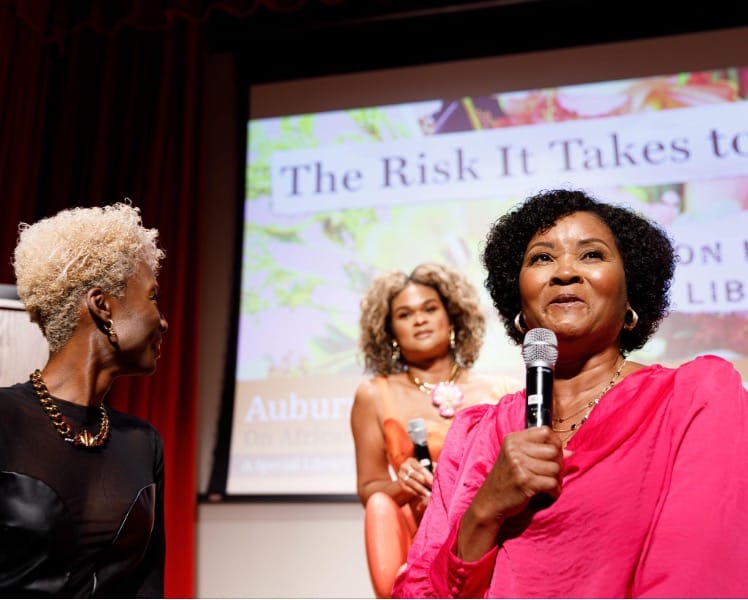
We’re all transitioning
Ross shifts from Willis to the family matriarch sitting in the front row. Ross asks gently, “Do you mind if I ask you a question?”
“No, I don’t mind,” said Marilyn D. Willis.
“Do you mind having a seat with me on the edge of the stage for a second?” Ross asked as an audience member yelled their approval of the impromptu stage blocking, “Use the whole stage, girl!” While Willis often speaks of lessons from her mother, Ross was interested in discovering what lessons Marilyn D. Willis learned from her daughter.
“To listen. You have to listen,” Marilyn D. Willis said. “I’ve been a mom now for 44 years, and I don’t take it for granted. I’ve learned so much from Raquel. I’ve been transitioning too,” she said.
Marilyn D. Willis said she’s adapting to evolving language around gender identity.
“I’m learning to co-exist comfortably and allow my daughter and her community, our community, to continue to thrive. If you truly love someone, it’s unconditional,” Marilyn D. Willis added. “God didn’t say love thy neighbor as thyself but peel away that which is not like you. We’re all different, and I appreciate differences. If we were all the same, it would be a boring world.”
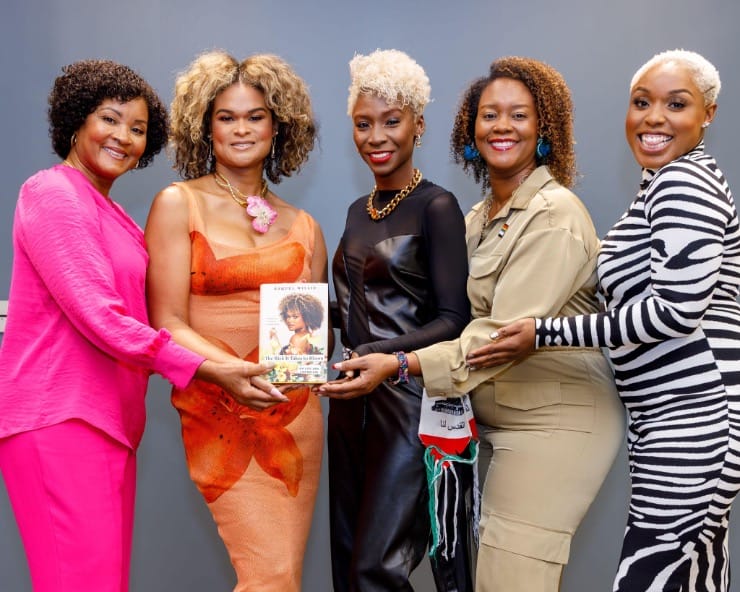
Willis said her mother demanded respect for her when she wasn’t in the room.
“We all have our older relatives that don’t get everything. And my mom is the one that’s like,’ She, Raquel, that’s my daughter,'” said Willis.
“So much of our community, our world, our society has been vocally in denial about the existence of queer and trans [people], and yet they are some of the first ones to recognize it before we do,” echoed Ross.
Sequoyah Glenn, a former high school classmate of Willis and founder of 924 CoOp recognized there was something different about Willis in 2008. Fifteen years later, she came to meet the woman Willis has blossomed into and to apologize.
“I said something very hurtful to Raquel in my ignorance,” Glenn said moments after approaching a microphone positioned house right. “I knew something was different. We knew you were not gay. We didn’t know what it was called. I did your makeup junior year, and that was when I met Raquel,” Glenn added. “I did not know it was Raquel, but Raquel has always been there.”
With very few dry eyes in the auditorium, Glenn thanked Willis for educating the masses and extending grace and compassion to her and others who are slow to understand trans people but quick to judge.
“Seeing who that little girl was when I put on her makeup in 2008 shine and inspire [cis] people like me, other trans people, other queer people, I just want to acknowledge that,” said Glenn.
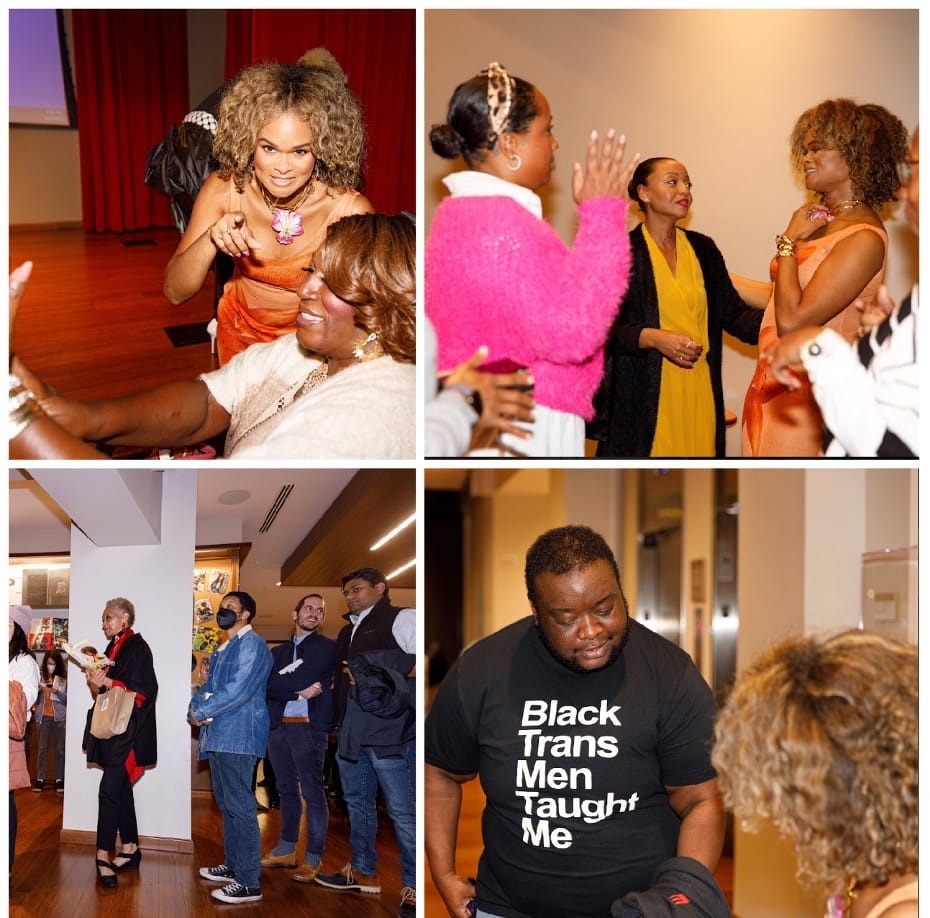
Willis said the restrictive ideals imposed upon her by society about how she was expected to navigate the world are not only hurting trans people but cis people like Glenn as well, and “trans and nonbinary folks give us a glimpse of what’s possible when you let all that shit go.”
“When I think about Black cis men, queer, straight, you’re never going to be man enough in this white supremacist society because you will never be able to live up to those ideals set before you, and that’s what we have in common, so let’s own that together,” Willis said. ”
“And similarly, when there are Black cis women who think that Black trans women are trying to take their spot. No, honey. I love you in your spot. I want you to get your tens. You deserve your tens, and I deserve mine, too,” she added. “But you will never be able to live up to these ideals around womanhood in a white supremacist society either. So, let’s figure out what we’re going to do with that. Can we own that by being Black, we’re inherently gender nonconforming?”
With the release of “Bloom,” Willis is adding a specific Black Southern experience to the trans literary canon—one that she hopes will “plant seeds to leave the soil richer for those to come.”
“I want folks to understand their inherent power. We don’t have to accept the path laid out for us; we can build our own,” Willis said. “And honestly, building your own thing is a glorious revolution.”
Editor’s Note: Raquel Willis is a consultant at GLAAD.

